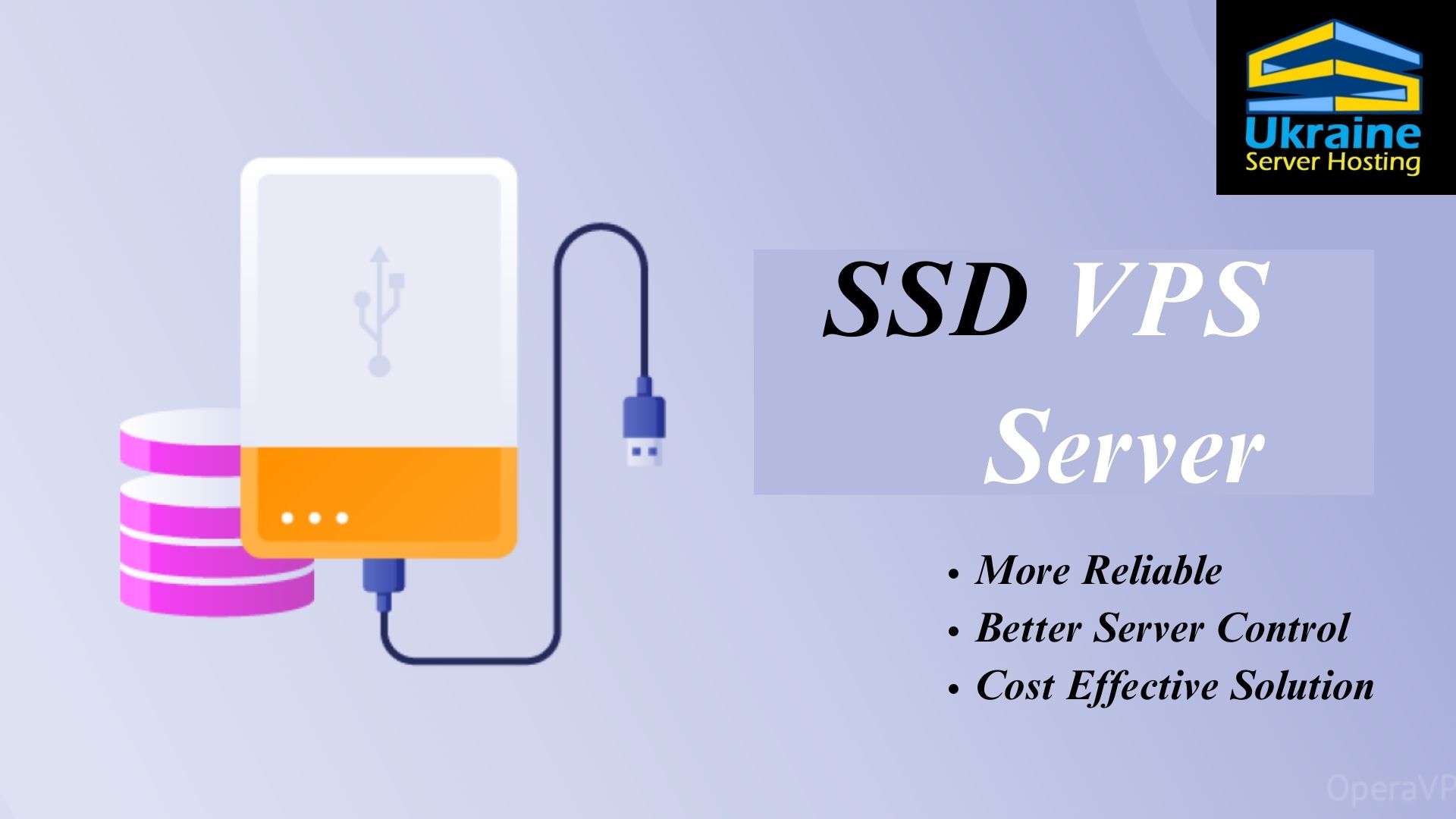
Combining the speed and efficiency of Solid-State Drives (SSD) with the flexibility of Virtual Private Servers, Ukraine Server Hosting have emerged as a powerhouse solution for businesses and individuals. In this article, we’ll delve into the intricacies of SSD VPS Server, exploring how to build, secure, and scale them to achieve server excellence.
Understanding SSD VPS Server
An SSD VPS (Solid State Drive Virtual Private Server) is a hosting solution that merges the advantages of SSD and VPS. Solid State Drives (SSD) use flash memory for data storage, offering exceptional speed and efficiency compared to traditional Hard Disk Drives (HDDs). Virtual Private Servers (VPS) create virtualized server environments within a single physical server, providing dedicated resources and customization. An VPS server utilizes the speed of SSD for storage while harnessing the isolation and flexibility of VPS hosting. This results in faster data access, improved performance, and the ability to tailor the server environment to specific needs.
Advantages of VPS Servers
The advantages of SSD VPS (Solid State Drive Virtual Private Server) hosting are numerous and impactful. By combining the speed and efficiency of SSD with the versatility of VPS environments, Ukraine Server Hosting offer a host of benefits. SSD provide lightning-fast read and write speeds, reducing data access times and enhancing overall server performance. This translates to quicker website loading times, smoother application functionality, and a more responsive user experience. Additionally, the inherent reliability of SSD, coupled with the isolation of VPS, ensures that resources are dedicated and consistent, minimizing the risk of performance bottlenecks caused by neighbouring users.
Building Your VPS Server
Building your SSD VPS (Solid State Drive Virtual Private Server) involves a strategic approach to ensure optimal performance and customization. The process begins with selecting a reputable hosting provider that offers SSD-based VPS services. This provider should offer high uptime guarantees, responsive customer support, and the ability to customize server configurations to meet specific needs.
Once you’ve chosen a provider, the next step is selecting the appropriate configuration for your server. Consider the amount of RAM, CPU cores, and storage capacity required based on your workload. This tailored approach guarantees that your server’s resources align with the demands of your applications and services, optimizing overall performance.
Securing Your SSD VPS Server
Securing your SSD VPS (Solid State Drive Virtual Private Server) is critical to safeguard your data, applications, and user information. Implementing robust security measures is essential to prevent unauthorized access and potential breaches. Here’s how you can secure your VPS server effectively:
Implementing Robust Authentication:
- Start by fortifying access to your server.
- Utilize strong passwords, preferably a combination of uppercase and lowercase letters, numbers, and special characters.
- Consider implementing two-factor authentication (2FA) to add an extra layer of security.
Regular Security Audits and Updates: Perform routine security audits to identify vulnerabilities in your server’s configuration and software. Regularly update the operating system, applications, and security software to patch known vulnerabilities and protect against emerging threats. Automatic updates can keep your server up-to-date without manual intervention.
Configure Firewalls and Access Control:
- Set up a firewall to filter incoming and outgoing network traffic.
- Configure it to allow only necessary services and ports, blocking potentially malicious connections.
- Utilize IP allowlisting and blocklisting to control which IP addresses can access your server.
Harden Server Settings: Disable unnecessary services, ports, and functionalities you’re not using. This minimizes potential attack surfaces. Limit user privileges and permissions to prevent unauthorized modifications. Consider using a non-root user for day-to-day tasks and only switch to the root user when necessary.
Ensuring High Performance
Ensuring high performance for your SSD VPS Server involves combining optimization techniques and strategic choices. You can maximize your server’s capabilities by focusing on software efficiency and leveraging additional tools. Here’s how to ensure optimal performance:
1. Optimizing Software and Applications: Efficiently coded software and applications are vital to maximizing server performance. Review and optimize your codebase to minimize resource usage and improve response times. Use caching mechanisms to store frequently accessed data, reducing the need to repeatedly fetch data from the database.
2. Content Delivery Networks (CDNs): Incorporate Content Delivery Networks to distribute content across multiple servers in different geographic regions. CDNs cache static assets like images, stylesheets, and scripts closer to the end-users, minimizing latency and improving page load times.
4. Database Optimization: Efficiently manage your database by using indexes, optimizing queries, and cleaning up unnecessary data. Regular maintenance keeps the database running smoothly and minimizes response delays.
5. Load Balancing: If your application experiences high traffic, consider implementing load balancing. Load balancers distribute incoming traffic across multiple server instances, ensuring even resource distribution and preventing server overload.
Conclusion
Ukraine Server Hosting offer exceptional speed, flexibility, and reliability. By carefully building, securing, and scaling your Ukraine VPS Server, you can unlock its full potential and provide a stellar online experience for your users.
